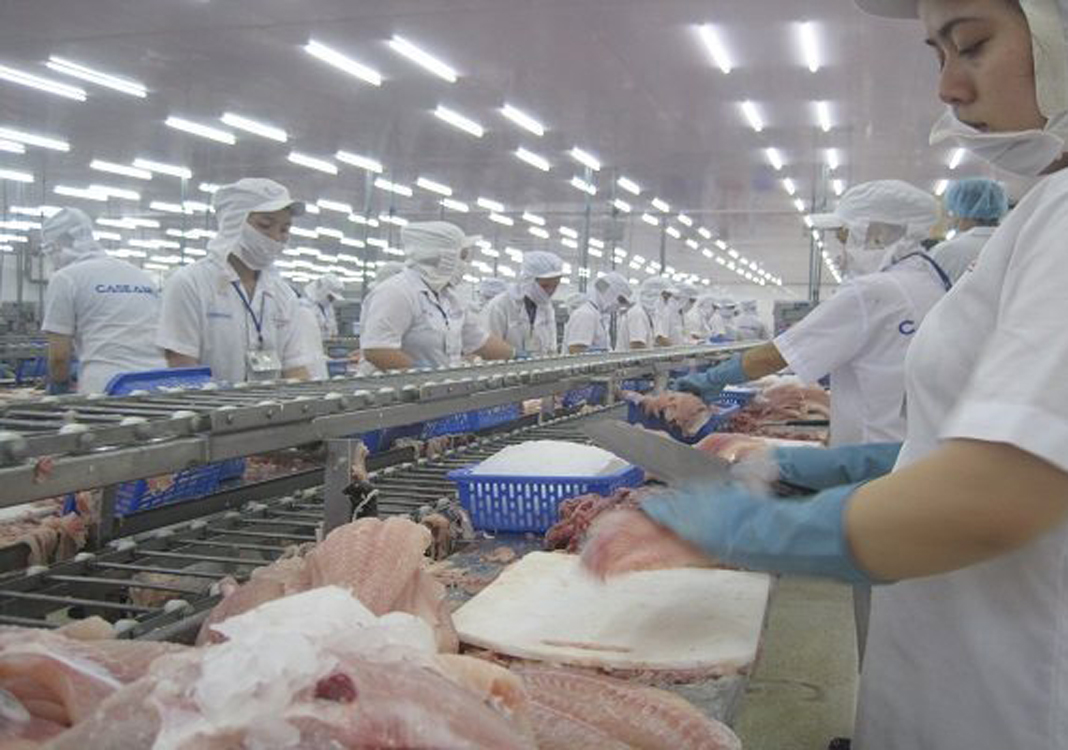CAN THO – HCMC should postpone the collection of fees for using infrastructure facilities and public services at seaport terminals in the city until Covid-19 is brought under control, at least until the end of this year, according to the Vietnam Association of Seafood Exporters and Producers (VASEP).
The association today, May 11, informed that it had sent the proposal to the Ministry of Justice so that the ministry would report it to the Government.
The approval of a resolution by the HCMC People’s Council on the fee collection has put pressure on the fishery sector as 70% of the sector’s imports and exports must pass through seaports in HCMC.
VASEP has also suggested revising down the fees and that HCMC should clearly report the collection and spending of the fee revenue.
On December 9 last year, the HCMC People’s Council issued a resolution on introducing levels of fees for using infrastructure facilities and public services at seaport terminals in the city.
Accordingly, the fee for goods temporarily imported for re-export, goods deposited in bonded warehouses and transit and transshipment goods would be VND2.2 million per 20-feet container, VND4.4 million per 40-feet container and VND50,000 per ton for liquid and bulk cargo.
As for imported and exported goods declared outside the city, the fee would be VND500,000 per 20-feet container and VND1 million per 40-feet container. Fees for liquid and bulk cargo would be VND30,000 per ton.
The fees would be VND250,000, VND500,000 and VND15,000 for goods declared in the city, respectively.
In addition, goods serving security, national defense, social welfare, the handling of consequences of natural disasters and diseases would be free of charge.
The fees would be collected from July 1 this year.
According to a firm trading in seafood in the Mekong Delta, enterprises have borne multiple fees, including BOT toll, environmental protection, cargo handling and storage fees and suffered from the transport fee hike. Therefore, the seaport fee will make it more difficult for them, especially when the Covid-19 pandemic has affected their orders.
Meanwhile, another company processing vegetables for export in the region stated that logistics fees have accounted for some one third of the selling prices of its products, higher than that of its rivals in Thailand, while most exports must be transported through seaports in HCMC. Therefore, the seaport fee will reduce the competitiveness of local products.
According to VASEP, the different fees for cargo declared in and outside the city will pose a high risk of overloading for the city’s customs system as many enterprises may rush to complete customs procedures for their cargo in the city.
Moreover, many enterprises have imported materials for processing and outsourcing before reexporting them. If the fee is collected, they must pay the fee for both imported materials and exported products, which is unreasonable.
By Trung Chanh









